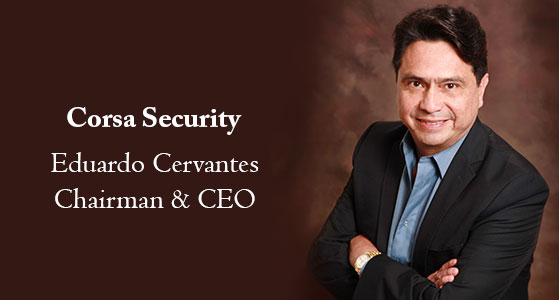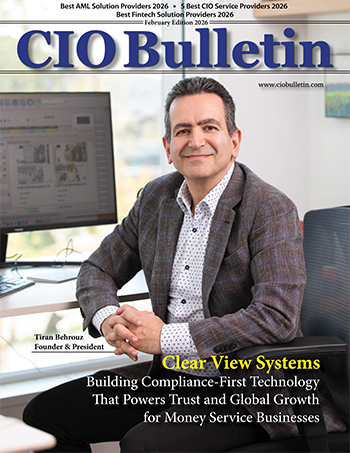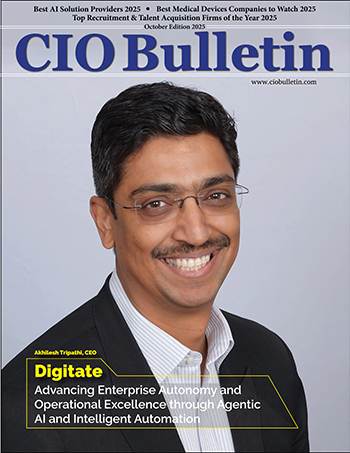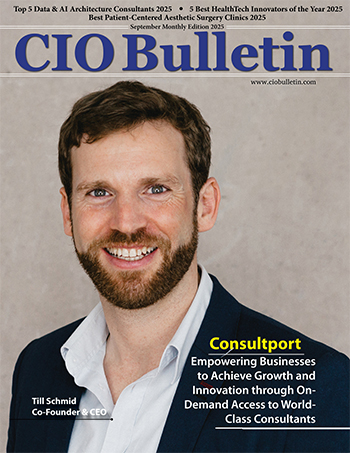CIO Bulletin

Organizing your virtual network can be relatively easy, and immediately increase network efficiency. You can design your network so that your Local Area Networks (LANs) are subdivided into virtual networks and VLANs. Doing so will dramatically improve load balancing. You can also improve security by segmenting your network and establishing role and location-based permissions and procedures. Doing this in a virtual environment enables you to be agile and adapt your network architecture as needed to manage changing and increasing network loading and demand.
Meet Corsa Security, the leader in scaling network security with the first turnkey network security virtualization platform that simplifies how large enterprises and service providers expand traffic inspection, increase threat protection and automate firewall virtualization, at much lower total cost of ownership (TCO).
We interviewed CEO of Corsa Security, Eduardo Cervantes and we talked about the learnings out of his experience in Corsa Security and a few thoughts on innovation and becoming a successful leader.
Eduardo fosters innovation by empowering people to take risks, try new ideas, explore. Through this empowerment, it is key to allow for mistakes, so risk control becomes important. Even more important is to allow people to occasionally fail, as this tells him that risks are being taken and new things are being tried. He believes that to foster innovation, a leader needs to be emotionally intelligent so that people feel comfortable experimenting without expecting penalties for failure. That said, one needs to instill discipline among the teams to ensure that experiments are properly measured, evaluated and discontinued when appropriate in order to conserve resources. Not every experiment needs to be a success but success needs to more than make up for all failures. So, people need to think big. Otherwise, the risk is not worth the cost, time and effort.
Eduardo’s philosophy is that for innovation, efforts need to be focused against a clear opportunity to leapfrog competition or create a compelling solution to a big and frequently encountered problem. Therefore, a “testing strategy” needs to be in place, and its execution needs to be properly tracked and measured. Teams need to be able to walk away from experiments that disappoint and re-focus on whatever learnings were gathered to ensure a successful next iteration.
In his mind, to be an innovator, patience is of utmost importance. Eduardo wants to learn quickly and iterate fast to the next big idea. However, often times innovation takes time. So, he has to be disciplined and make sure he manages performance very closely.
The key to his success has been tenacity, a combination of “book” and “street” smarts, and an unrelenting desire to create. He has been able to create value from the investment banking perspective, the investor perspective, and the operator perspective, while also learning the value of strategy. Even more importantly, the value of strategic execution. Meaning, the strategy required to execute a business plan. A disjointed, unmeasured, misaligned execution guarantees failure, no matter how good the business strategy is. He believes that execution is a science that requires:
One needs to understand that day-to-day business is not the same as strategy execution. The strategy needs to be deliberately implemented well beyond the daily tasks of running a company. He has learned that performance management from the business, organizational, and individual perspectives are the biggest contributors to business success.
That said, in order to be the best leader, Eduardo has also learned that the same level of attention has to be paid to personal and relational development in our lives. Leaders often fail not because of lack of talent and disposition, but because the struggle to connect with their organization at the emotional level. One needs to be rich in family and friend relationships. One also needs to know one self-enough to recognize thoughts and attitudes that sabotage our ability to stay positive in the face if obstacles and even failure. A leader needs to cultivate himself or herself just as much as the business.
Eduardo believes in working smart, not necessarily hard. That doesn’t mean that hard work is not important, but it means that one needs to focus on the activities with the biggest pay-off first, stop sweating the small things, and ensure that value is being created at every turn. As an example, he has found that the easiest way to achieve a goal is defining the desired outcome, and then working backwards to establish the key milestones that lead to that outcome. Once that is done, working to deliver each milestone, whether in parallel or sequentially, becomes much easier as one is not trying to “boil the ocean”. Again, this requires discipline and focus. It is easy to suffer from “mission creep”, where one does more than necessary to deliver the desired outcome with excellence. Eduardo sees this in teams all the time, where every member passes the point of ‘critical deliverables’, and instead of moving on to the next milestone, they continue to polish the work already done, which slows down the operation and over-complicates things. In the Silicon Valley, Eduardo has learned that when launching a new product, if one is proud of the product launched, it was probably launched too late.
The secret to winning in a competitive business situation according to Eduardo is to always know more about the customer than your competitors. In the consumer product businesses, understanding the consumer demographics and psychographics is key. A clear picture of how consumers perceive the product category and the competitors in it is imperative. Understanding their attitudes towards your competitor’s and your own product is critical. This is also true in the business-to-business world, where knowing your customers’ business, their priorities and their problems better than your competitors is the key to deliver an offering that will beat the competition.
Embrace the dignitary
Eduardo Cervantes is an award-winning operator for Private Equity backed companies in the Technology space. With over 40 technology transactions, he brings a wealth of experience accelerating revenues and profitability, organically and through M&A. He is currently an operations, cyber security and surveillance advisor for several prestigious PE firms. Eduardo has led cyber security organizations like Panda Security and Corsa Security since 2010, and has led several successful exits to global acquirers. Today, Eduardo is the Chairman and CEO of Corsa Security, the leader in network security automation, and serves as a Board Director for US and European PE backed Technology firms.

Insurance and capital markets







